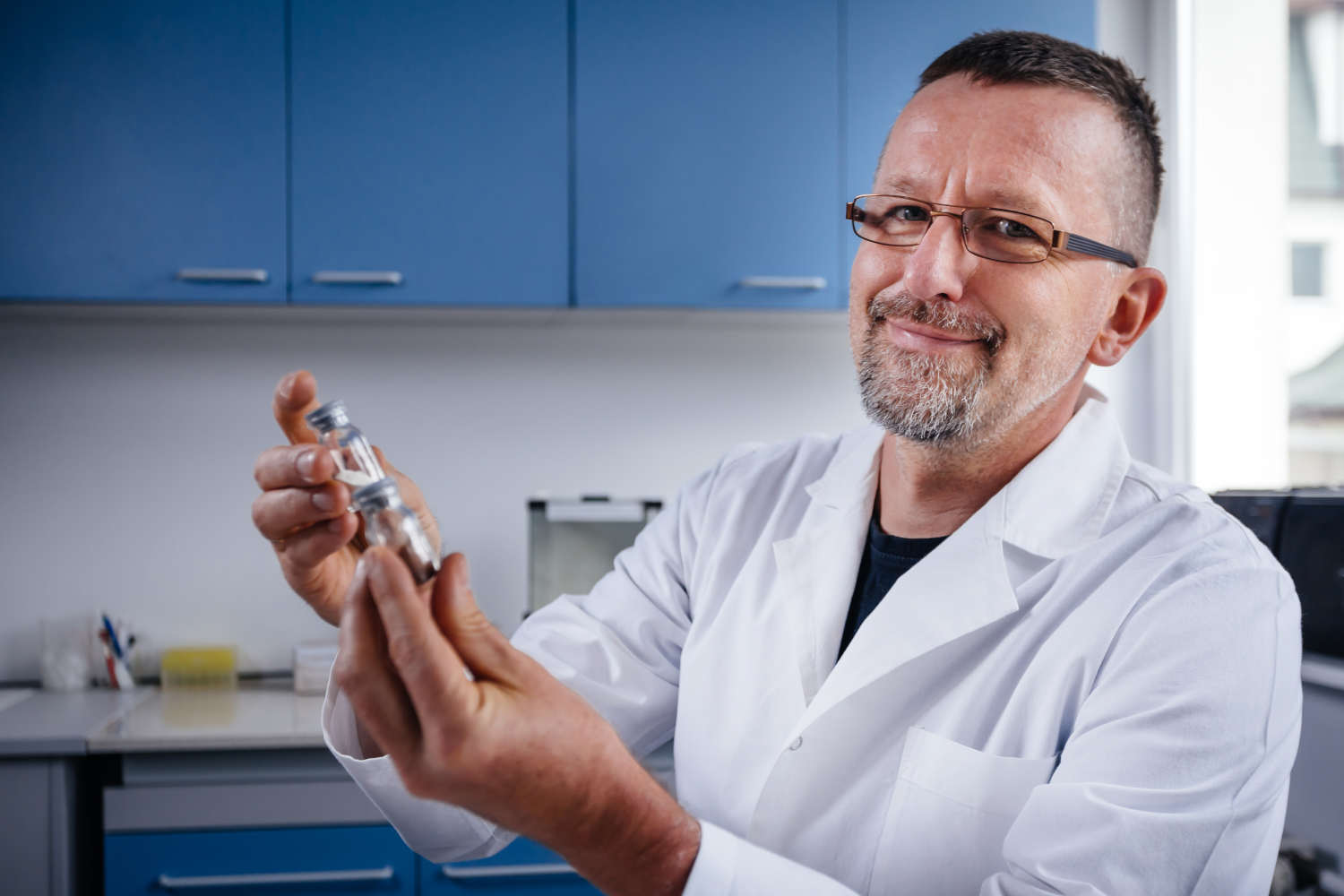
The liver is an organ highly vulnerable to the effects of a high-fat diet. Research by scientists at the Institute of Animal Reproduction and Food Research of the Polish Academy of Sciences in Olsztyn has shown that the best way to improve its functioning is to switch to an easy-to-digest diet together with chromium supplementation.
– All of us who eat very unhealthily will sooner or later suffer the negative consequences of our irresponsible eating behaviour, for example in the form of liver problems. The best way to improve your health is to change to a low-fat diet. In combination with new eating habits, the therapy should be supplemented with chromium supplementation, which, among other things, helps reduce fat and inflammation of the liver, emphasises Professor Jerzy Juśkiewicz from the Department of Biological Functions of Food at our Institute.
His team’s findings were published in the International Journal of Molecular Sciences.
Chromium (trivalent) is a key micronutrient associated with carbohydrate, protein and fat metabolism in humans and animals. Because of its ability to regulate carbohydrate and lipid metabolism and reduce body weight, this dietary micronutrient is a popular booster for diabetes therapy and an ingredient in supplements used for weight loss. – This is a well-known relationship, but there are still disputes among scientists about the effectiveness of therapy with such supplementation alone. Indeed, some scientific studies have indicated that chromium should be treated with caution as an anti-obesity supplement, as some experiments have reported a deterioration in the functioning of some internal organs,’ points out Professor Jerzy Juśkiewicz.
Currently, the most popular form of chromium used in dietary supplements is organic chromium picolinate (Cr-Pic). Its intake can help, among other things, to reduce body weight without loss of muscle mass. – However, due to the relatively low bioavailability (i.e. absorption from the gastrointestinal tract) of Cr-Pic, the search is on for other forms of chromium that will be better utilised in the body. For these reasons, scientists have become interested in chromium complexes with amino acids and the inorganic form of chromium in the form of nanoparticles; the possibility of their application in humans, however, still requires in-depth research, which is currently being conducted on animal models, explains the researcher.
Over the past few years, Prof. Juśkiewicz’s team, together with scientists from the University of Life Sciences in Lublin (Prof. Katarzyna Ognik’s team), have been researching the biological activity of various nanoparticles that enter the digestive tract with the diet. Their most recent research project, funded by the National Science Centre, focused on chromium.
– We wanted to test whether the negative effects associated with long-term consumption of a high-fat diet, observed at the intestinal, vascular and hepatic levels, could be sequentially alleviated by dietary supplementation with different forms of chromium and/or a change in eating habits by switching to a 'normal’ – low-fat diet, says the researcher.
An excerpt from the results of the study, which was published in the International Journal of Molecular Sciences, focuses on liver function.
– The liver is the organ most exposed to the effects of eating a 'fatty’ diet and the presence of new dietary elements, namely chromium nanoparticles. Studies have clearly shown that the liver of rats fed a high-fat diet for long periods of time is simply unhealthy – fatty, 'stressed’ by free radicals and in a permanent state of inflammation. We have shown that abandoning a fatty diet in favour of a lower fat, higher fibre diet is the best solution to improve liver function. Our findings were supported by a range of assayed parameters, biochemical and molecular. Interestingly, the addition of chromium supported the therapy of changing to a 'healthier’ diet, and the chromium nanoparticles themselves were more 'helpful’ than chromium in picolinate form, says the researcher.
In the next stages of the project, the researchers will, among other things, focus on in-depth studies of chromium nanoparticles in other organs, in the context of their safety for future human consumption.
The research project entitled „Alleviation of adverse effects associated with high-fat diet through dietary patterns changes and/or supplementation of various forms of chromium” (2020/39/B/NZ9/00674) is funded by the National Science Centre (NCN). It is conducted by the Institute of Animal Reproduction and Food Research of the Polish Academy of Sciences in Olsztyn in collaboration with the University of Life Sciences in Lublin.